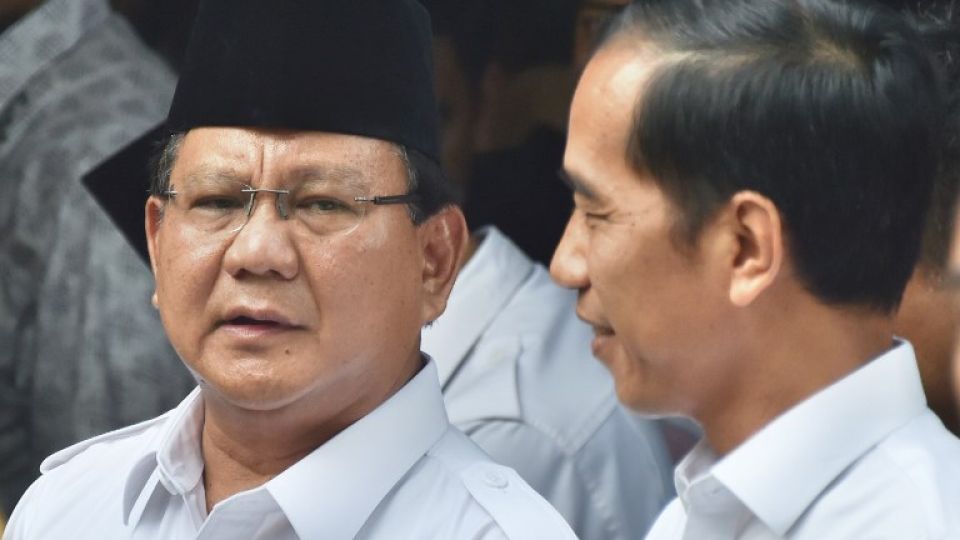April 5, 2019
The world’s largest Muslim country prepares to go to polls.
The world’s third-largest democracy will hold legislative elections and presidential elections on April 17. With more than 192 million people eligible to cast ballots, the Indonesian polls will be the world’s biggest direct presidential election and the country’s fourth since the democratic era began in 1998.
This will also be the first time in the country’s history that voters will choose their president, parliamentarians, and local legislative positions on the same day.
The numbers in the legislative race are staggering. Across the country, more than 20,000 legislative seats are being contested by upwards of 245,000 candidates.
The presidential race, the big ticket contest, is set to pit incumbent President Joko Widodo, popularly known as Jokowi, against his old rival, former Suharto-era lieutenant general Prabowo Subianto, in a rematch from the 2014 election
The incumbent president, Joko, 57 was born in a slum in Central Java and made his money in the furniture business before becoming mayor of Surakarta, a city in Central Java, and then the governor of Jakarta. Joko is running on his presidential record, and voters appear ready to give him another chance at the office.
A recent poll released by Washington, D.C.-based think tank Center for Strategic and International Studies found that Joko and his running mate Ma’ruf Amin have a double digit lead over the Prabowo-Sandiaga Uno ticket with less than a month until votes are cast.
Joko’s challenger, Prabowo, the chairman of the Gerindra Party has a controversial history. His role in the military during the autocratic Suharto era—he was a former special forces commander, and is also the former son-in-law of Suharto—has led observers to raise concerns that about the ways his vision for Indonesia might undermine the country’s democratic institutions in favor of military dictatorship.
Prabowo is running on a platform that emphasizes national strength. His populist rhetoric, has earned him comparisons to Philippine President Rodrigo Duterte and Brazilian President Jair Bolsonaro.
Prabowo has also been accused of having a hand in some of the worst human rights abuses in Indonesia’s history—the abduction and torture of 23 pro-democracy activists between 1997 and 1998, and the mass killings of hundreds of East Timorese in the 1980s the orders for which allegedly came from Prabowo.
The Issues
Human rights have, understandably been a major focal point of this election season, with both major presidential candidates, and their running mates tasked with explaining their record on the issue.
In his 2014 campaign, Joko vowed to investigate and resolve past human rights abuses, including the tragic anti-communist purges of 1965, the May 1998 riots, but the lack of attention or action on these issues for the past five years of his term have left advocates disappointed.
And, activists have been critical of Joko’s government’s increasing use of excessive force to deal with drug crime—including extra-judicial killings and use of the death penalty for drug dealers.
Additionally, Joko’s choice of running mate has rights advocates concerned. Ma’ruf Amin, the chairman of the Indonesian Ulema Council, the country’s top clerical body, has played a role in advocating for restrictions on religious freedom for minority groups. Under his leadership, the Council issued several fatwas including declaring Ahmadi Muslims as deviant, calling for the criminalization of LGBT activities and coming out in support of female genital cutting.
It’s widely assumed that Joko chose his running mate in part to quell criticisms that he’s not Muslim enough to be president, and to court more conservative members of the Indonesian electorate.
Religion has become a hot topic that has Indonesian voters debating the place of Islam in the country’s politics and Ma’ruf’s history isn’t the only background that has come under fire. Analysts have also questioned Prabowo’s connections to Islamist groups.
One question that has surrounded this election will have ramifications for years to come—that question touches on the overall health of Indonesia’s democracy.
Indonesia observers have, for the past several years been warning of a democratic backsliding. New regulations from President Joko have given authorities sweeping powers to ban social and civil society organizations they deem to be in opposition to “Pancasila” the foundational theory of the Indonesian state.
These regulations, coupled with the instances of government critics who face arrest for makar, or treason, and a rising intolerance for religious, cultural and sexual minorities have analysts and advocates worried.
In 2018, Indonesia’s democracy was downgraded by The Economist’s Intelligence Unit which placed the country on the low end of “flawed democracies.” The next lowest category, which Indonesia is approaching, is “hybrid regime.”
Perhaps it’s this democratic backsliding that has contributed to another major issue that has defined this Indonesian election—the concept of “golput,” a colloquial term that covers voter abstention, ballot spoiling, and other forms of quiet poll protest.
In recent weeks golput has taken over social media with some Indonesians publicly announcing plans to avoid the polls, and others lambasting those who might golput as harmful to the democratic process.
This movement over social media means that, among other issues, turnout will be a crucial indicator to watch come April 17.


